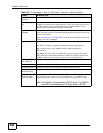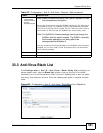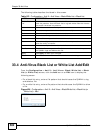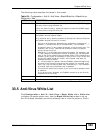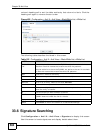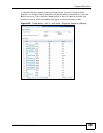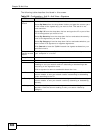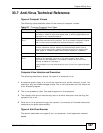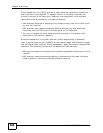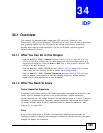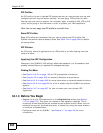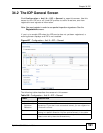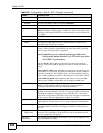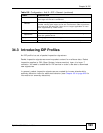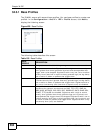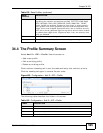
Chapter 33 Anti-Virus
ZyWALL USG 300 User’s Guide
588
A host-based anti-virus (HAV) scanner is often software installed on computers
and/or servers in the network. It inspects files for virus patterns as they are
moved in and out of the hard drive. However, host-based anti-virus scanners
cannot eliminate all viruses for a number of reasons:
• HAV scanners are slow in stopping virus threats through real-time traffic (such
as from the Internet).
• HAV scanners may reduce computing performance as they also share the
resources (such as CPU time) on the computer for file inspection.
• You have to update the virus signatures and/or perform virus scans on all
computers in the network regularly.
A network-based anti-virus (NAV) scanner is often deployed as a dedicated
security device (such as your ZyWALL) on the network edge. NAV scanners inspect
real-time data traffic (such as E-mail messages or web) that tends to bypass HAV
scanners. The following lists some of the benefits of NAV scanners.
• NAV scanners stops virus threats at the network edge before they enter or exit a
network.
• NAV scanners reduce computing loading on computers as the read-time data
traffic inspection is done on a dedicated security device.



